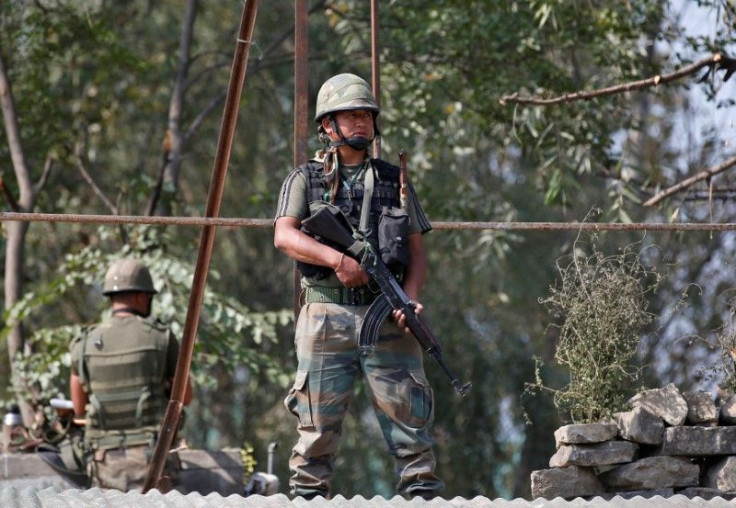India-Pakistan Conflict: If Neighbors Head To War, Who Has The Stronger Military?

As the tension and rhetoric continue to build between long-time adversaries India and Pakistan, there are growing fears that the nuclear-armed neighbors could be sliding toward war.
An attack on an Indian military based in the contested region of Kashmir last week killed 18. India claims the attack was carried out at the hands of its neighbor, which is fiercely disputed by Pakistan. Earlier this week, India said it responded by “surgical strikes” against Pakistan-based terrorists, yet Pakistan denies those strikes even took place, a flickering insight to the distrust between the two countries that have fought four wars since becoming independent states in 1947.
To huge concern, particularly when considering the counties have a combined population of close to 1.5 billion, officials from both India and Pakistan have talked up the possibility of further military action.
"The objective is not just to go across the border and kill 10-12 people," an Indian security official told Reuters. "The objective is to bring about a change in Pakistani behavior, and for that you need to move on multiple levels. The strategy will involve all instruments of national power. Military is only one of the options."
Pakistan defense minister Khawaja Asif has stressed that his country will deploy its nuclear arsenal if deemed necessary.
“We haven't kept the devices that we have just as showpieces,” Asif said in a television interview, according to The Times of India. “But if our safety is threatened, we will annihilate them [India].”
Pakistan’s nuclear capability has also caused concern in the United States. In hacked audio from a speech at a February fundraiser, Democratic presidential nominee Hillary Clinton expressed fears of nuclear weapons falling into terrorists’ hands.
“Pakistan is running full speed to develop tactical nukes in their continuing hostility with India,” she said. “But we live in fear that they’re going to have a coup, that jihadists are going to take over the government, they’re going to get access to nuclear weapons and you’ll have suicide nuclear bombers. So, this could not be a more threatening scenario.”
While Pakistan is a country one-fifth the size of India and India has an economy seven times larger, the two have similar nuclear capabilities. India has between 100 and 120 warheads and Pakistan between 110 and 130, according to the Stockholm International Peace Research Institute (Sipri).
In terms of overall military capability, however, India has a significant edge. In 2015, India spent $48 billion on its defense budget, the sixth largest of any country in the world, according to the International Institute for Strategic Studies (IISS), a British think-tank. India’s army numbers reach 1.15 million, compared to Pakistan’s 550,000.
As for weapons, Pakistan has more medium-range ballistic missiles (MRBMs), 30 to India’s 12, but India has more short-range ballistic missiles (SRBMs), 42, to Pakistan’s 30.
The Global Firepower Index ranks India as having the fourth strongest military in the world, with Pakistan at 13th. The index has India coming out on top in terms of aircraft, 2,086 to Pakistan’s 923, helicopters, 646 to 306 and submarines, 14 to five.
© Copyright IBTimes 2025. All rights reserved.





















